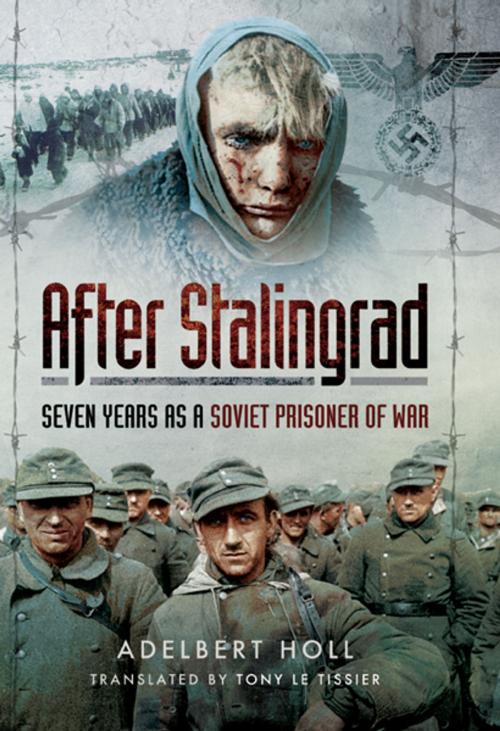After Stalingrad
Seven Years as a Soviet Prisoner of War
Nonfiction, History, Asian, Russia, Military, World War II, Biography & Memoir, Historical| Author: | Adelbert Holl | ISBN: | 9781473856127 |
| Publisher: | Pen and Sword | Publication: | March 30, 2016 |
| Imprint: | Pen and Sword Military | Language: | English |
| Author: | Adelbert Holl |
| ISBN: | 9781473856127 |
| Publisher: | Pen and Sword |
| Publication: | March 30, 2016 |
| Imprint: | Pen and Sword Military |
| Language: | English |
The battle for Stalingrad has been studied and recalled in exhaustive detail ever since the Red Army trapped the German 6th Army in the ruined city in 1942. But most of these accounts finish at the end of the battle, with columns of tens of thousands of German soldiers disappearing into Soviet captivity. Their fate is rarely described. That is why Adelbert Holl's harrowing and vivid memoir of his seven-year ordeal as a prisoner in the Soviet camps is such an important record as well as an absorbing story.
As he moves from camp to camp across the Soviet Union, an unsparing inside view of the prison system and its population of ex-soldiers emerges. He describes the daily life in the camps – the crowding, the dirt, the cold, the ever-present threat of disease, the forced marches, the indifference or cruelty of the guards – in authentic detail.
The Soviets treated German prisoners as slave labourers, working them exhaustively, in often appalling conditions. The prisoners could only struggled to survive, to support each other, and hope against hope to return home.
The battle for Stalingrad has been studied and recalled in exhaustive detail ever since the Red Army trapped the German 6th Army in the ruined city in 1942. But most of these accounts finish at the end of the battle, with columns of tens of thousands of German soldiers disappearing into Soviet captivity. Their fate is rarely described. That is why Adelbert Holl's harrowing and vivid memoir of his seven-year ordeal as a prisoner in the Soviet camps is such an important record as well as an absorbing story.
As he moves from camp to camp across the Soviet Union, an unsparing inside view of the prison system and its population of ex-soldiers emerges. He describes the daily life in the camps – the crowding, the dirt, the cold, the ever-present threat of disease, the forced marches, the indifference or cruelty of the guards – in authentic detail.
The Soviets treated German prisoners as slave labourers, working them exhaustively, in often appalling conditions. The prisoners could only struggled to survive, to support each other, and hope against hope to return home.















